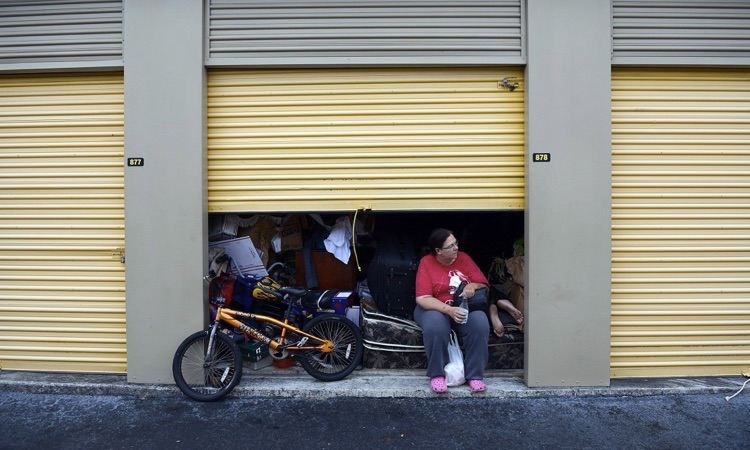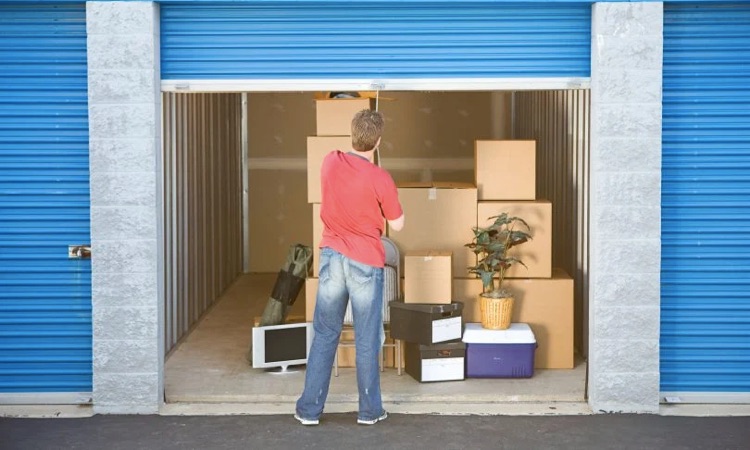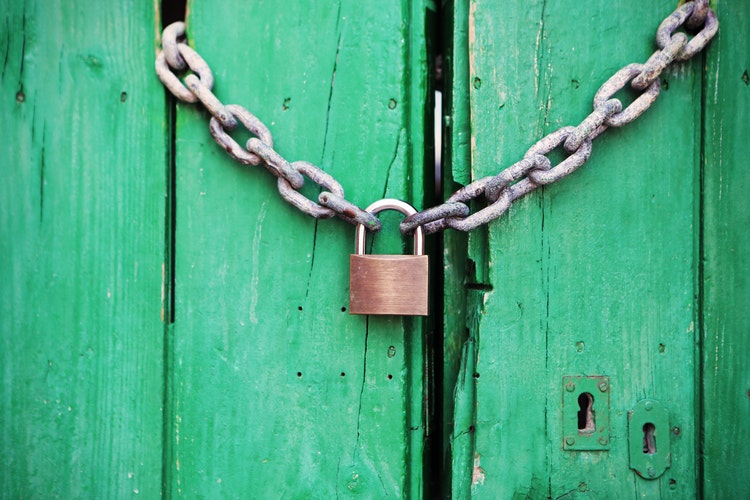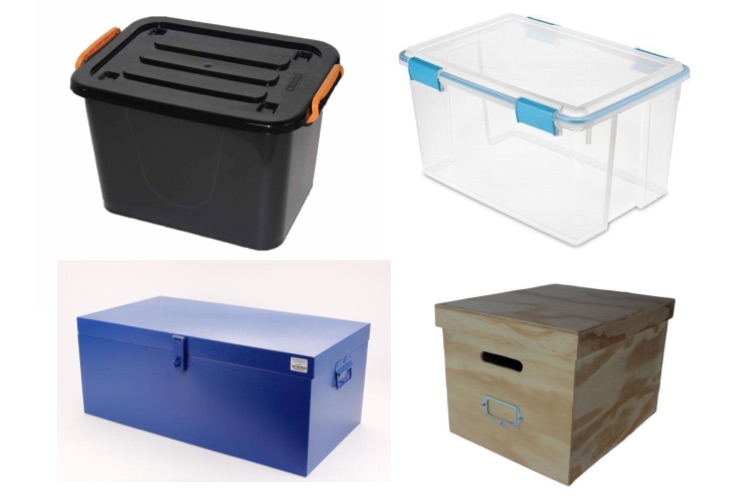A look at the risks and legalities of sleeping in a storage unit
In recent years, there has been a growing trend of individuals turning to unconventional living arrangements in an effort to save money or escape the traditional housing market.
One such alternative is living in a storage unit. This may sound like a bizarre or extreme choice, but for some, it seems to offer a unique and affordable solution to their housing needs. However, this decision is not without its risks and legal implications.
In this comprehensive guide, we will thoroughly explore the appeal of storage unit living, its legal aspects, the health and safety risks associated with it, and the potential consequences one may face. Keep reading to learn more.

The Appeal of storage unit living
The idea of living in a storage unit may initially seem unappealing or even downright strange. However, there are several reasons why some individuals find it attractive.
Firstly, the cost of living in a storage unit is generally much lower than renting a traditional apartment or house. With the rising cost of living and housing in many urban areas, this can be a significant draw for those looking to save money.
Secondly, storage unit living offers a certain level of flexibility and freedom. Many storage facilities have 24-hour access, allowing residents to come and go as they please.
Additionally, storage units often provide a sense of privacy that can be difficult to find in shared living arrangements or overcrowded apartments. Lastly, for individuals who are struggling with homelessness or housing instability, storage units may provide a temporary solution to their immediate needs.
Legal aspects of residing in a storage unit
Despite its potential appeal, living in a storage unit is not without legal complications. In most jurisdictions, it is illegal to reside in a storage unit.
Storage facilities are typically zoned for commercial use, meaning they are not intended for residential purposes. Moreover, storage units are not designed to meet the building codes and safety standards required for human habitation.
Additionally, storage facility leases often include clauses that specifically prohibit using the premises for residential purposes.
Violating these terms can lead to eviction or even criminal charges. In some cases, storage facilities may be held liable for allowing individuals to live on the property, which can result in fines and legal consequences for the business owners.

Health and safety sisks
Living in a storage unit can pose several health and safety risks. One of the most significant concerns is the lack of proper ventilation in storage units.
These spaces are designed to protect items from the elements, not to provide a comfortable living environment for humans. As a result, they often lack adequate air circulation, which can lead to poor air quality and an increased risk of respiratory issues.
Furthermore, storage units typically do not have access to water or sanitation facilities. This means that individuals living in storage units may struggle to maintain proper hygiene, which can lead to various health problems.
Additionally, the lack of access to a kitchen or cooking facilities can make it difficult to prepare and store food safely, increasing the risk of foodborne illness.
Another concern is the potential for fire hazards. Storage units are not designed to accommodate electrical wiring for appliances or lighting, which can create a dangerous environment when makeshift electrical systems are put in place.
The combination of poor ventilation, limited access to fire suppression resources, and improper electrical wiring can significantly increase the risk of a fire in a storage unit.
Potential consequences of living in a storage unit
Individuals caught living in a storage unit can face several consequences. The most immediate repercussion is eviction from the storage facility.
The facility’s management may also confiscate any belongings left in the unit, leaving the individual without their possessions. Additionally, if the individual has violated the terms of their lease, they may be held financially responsible for any damages or legal fees incurred by the storage facility.
In some cases, living in a storage unit can result in criminal charges. Depending on the jurisdiction, individuals may be charged with trespassing, violating zoning regulations, or even squatting. These charges can result in fines or even jail time.
Moreover, living in a storage unit can have long-term consequences for one’s health. As mentioned earlier, the lack of proper ventilation, access to sanitation, and potential fire hazards can contribute to a variety of health problems. These issues can have lasting impacts on an individual’s quality of life and overall well-being.

Storage unit alternatives for affordable housing
An alternative is to consider shared living arrangements, such as renting a room in a house or apartment with roommates.
This can significantly reduce housing costs and provide a more suitable living environment than a storage unit. Additionally, some cities and towns offer affordable housing options through nonprofit organisations or community-based programs.
Lastly, individuals may wish to explore alternative housing options, such as tiny homes, mobile homes, or even converted vans or buses. While these options may still present challenges in terms of legality and zoning regulations, they often provide a more comfortable and safer living environment than a storage unit.
Ensuring compliance with local laws and regulations
Regardless of the housing option chosen, it is essential to ensure compliance with local laws and regulations. This includes obtaining the necessary permits, adhering to building codes and safety standards, and following zoning regulations. Failure to comply with these rules can result in fines, legal consequences, and even eviction.
Individuals should research their local laws and consult with experts, such as attorneys or city officials, to ensure they are meeting all necessary requirements. Additionally, it may be helpful to seek out resources and support from local housing advocacy groups or nonprofit organizations.
Storage unit insurance and liability considerations
Even if an individual does not reside in a storage unit, it is essential to consider insurance and liability when utilizing a storage facility.
Most storage facilities require renters to maintain insurance coverage for their stored belongings. This coverage can protect against losses due to theft, natural disasters, or other unforeseen events.
Additionally, individuals should be aware of their potential liability should an accident or injury occur within their storage unit.
For example, if someone is injured while helping the individual move items in or out of the unit, the individual may be held responsible for damages. It is essential to take precautions to minimise risks and ensure that one’s insurance coverage is adequate to protect against potential liability.
Tips for staying safe when utilising storage units
Whether living in a storage unit or simply using one to store belongings, it is crucial to prioritize safety. Here are some tips for staying safe when utilizing storage units:
- Choose a reputable storage facility with proper security measures in place, such as surveillance cameras and access control systems.
- Keep the storage unit clean and organised to minimise the risk of accidents or injuries.
- Avoid storing hazardous materials or items that may pose a fire risk, such as flammable liquids, propane tanks, or fireworks.
- Regularly inspect stored items for signs of damage or wear, and promptly address any issues to prevent accidents or injuries.
- Be cautious when accessing the storage unit, especially during inclement weather or periods of low visibility. Use proper lighting and be mindful of potential trip hazards or obstacles.
In Summary
While living in a storage unit may initially seem like an affordable and flexible housing solution, it is essential to carefully consider the risks and legalities involved.
The potential health and safety hazards, legal consequences, and long-term impacts on one’s well-being should not be taken lightly. By exploring alternative housing options and ensuring compliance with local laws and regulations, individuals can find a safe and suitable living situation that meets their needs and budget.


